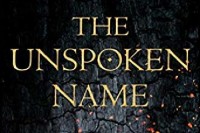
Why Woody Allen's publisher was wrong to drop his memoir
theguardian.com – Tuesday March 10, 2020

What a strange, through-the-looking-glass world we live in, when people who consider themselves to be liberals celebrate suppressing others’ words. A little background on the latest chapter in the saga that is Woody Allen and the Farrow family. It’s a lot less fun than Hannah and Her Sisters, although it does feature many of the same cast and crew members.
It was announced last week that Hachette was publishing Allen’s memoir. Reactions were as predictably swift as they were just plain predictable, with public opinion very much against Allen these days. The Farrow family was especially vocal in its condemnation: Ronan Farrow posted a statement to express his “disappointment” that Hachette, which published his book, Catch and Kill, hadn’t told him it was publishing his estranged father’s memoir. He expressed especial frustration that his sister Dylan “has never been contacted to respond to any denial or mischaracterisation of the abuse she suffered at the hands of Woody Allen”. Farrow describes this now infamous allegation of abuse as “credible”, but it has never actually resulted in any charges. Was Allen ever contacted to respond to Farrow’s statement in his book that his father “penetrated [Dylan] with a finger”? He has been as consistent with his denials as Dylan has been with her accusation.

How Literary Agents Negotiate The Best Contract Terms For Their Authors
forbes.com – Tuesday March 3, 2020

While book deals that garner headlines are often the six- and seven-figure ones, literary agents do more for their authors than negotiate advances. There are many contract clauses agents advocate for that help authors in situations such as when an imprint or publisher shuts down or when royalties are overdue, along with providing general writing career guidance and advice.
To help authors figure out how to navigate these terms, I interviewed Linda Camacho, literary agent at Gallt & Zacker Literary Agency, Saritza Hernandez, VP/Sr. Literary Agent at the Corvisiero Literary Agency, and Latoya Smith, editor, literary agent and consultant at LCS Literary Services. I asked them about the most important contract terms they negotiate on behalf of their authors, publishing red flags, and how authors can be proactive about protecting their interests when working with agents or on their own.

A twist in the tales: Ahead of World Book Day, publishers and authors reveal why children still prefer page-turners to pixels
sundaypost.com – Tuesday March 3, 2020

Despite children often being apparently glued to their screens, it seems they really love nothing more than a good read, with sales of kids’ books in the UK climbing 15.5% in a decade.
The industry, worth £290 million in 2010, netted £335m last year.
A decade ago, with the rise of ebooks, there was a fear that children’s books sales would plummet, but Publishing Scotland’s marketing manager, Vikki Reilly, says it has been one of the least affected sectors.

This Is What 300 Writers Say Made Them Successful
entrepreneur.com – Sunday March 1, 2020

Red Smith, a legendary sportswriter, was once asked if it was hard to write his daily column. “Why no,” he said. “You simply sit down at the typewriter, open your veins, and bleed.”
Any person who’s ever tried to string a bunch of words together and make them sound interesting can feel Smith’s pain. Writing is brutal — and writing for a living can feel like you’re Jack Nicholson in The Shining typing the same sentence over and over again.
And we all know how that turned out.
On my podcast, Write About Now, I interview writers of all types — novelists, journalists, screenwriters, showrunners, and business gurus — about how they stopped bleeding, started writing, and landed at the top of their profession. I launched the show two years ago and during that time I’ve done a deep dive into the techniques and tactics of over 300 successful scribes. After a while, I noticed some common themes start to rear their poetic heads. Call them writer hacks, but just not the type that draw blood. Here are six things successful writers do.

The Myth Of Inspiration As The Source Of Good Writing
studybreaks.com – Saturday February 29, 2020

You have an idea that comes to you in a burst of inspiration. Your mind is filled with the possibilities of where this thought will take you. You sit down with a hot cup of tea at dusk by your 19th century vintage typewriter as it rains outside — not too hard, of course, but just enough to complete the aesthetic. You poise your fingers over the keys, ready to type it out, write 12 or 13 pages of absolute genius, but your fingers stay suspended over the keys, unmoving. Seconds tick by. The ideas have stalled; your mind is buffering. It’s like that scene from “Spongebob” where all you’ve got after hours is a decorated, anticlimactic “The” at the top of the page. So, you call it a night and open up Netflix instead, feeling vaguely disappointed. Your tea has gotten cold.
Why does inspiration fizzle out like this? Why do ideas that seem amazing in the moment go kaput when a writer tries to put them to paper? Where does the mood go, where does the magic go?

How to write an action scene (by someone who hates having to do them) by A.K. Larkwood
femalefirst.co.uk – Monday February 24, 2020

I’ve never met a writer who likes writing action scenes. I assume this is because we got into writing from a love of staying inside and not doing anything too exciting. Unfortunately, sometimes you do want something exciting to happen to the characters. I write fantasy adventure novels, which have a higher than average rate of duels, chases and explosions. Here’s the method I came up with to deal with them:
Get the free newsletter | Submit a news item or article | Get Writers' News for your website





